
William Wallace Wotherspoon was a United States Army general who served as Chief of Staff of the United States Army in 1914.

Kingston is a village and a census-designated place within the town of South Kingstown in Washington County, Rhode Island, United States, and the site of the main campus of the University of Rhode Island. The population was 6,974 at the 2010 census. Much of the village center is listed on the National Register of Historic Places as Kingston Village Historic District. It was originally known as Little Rest.

Gilbert Carlton Walker was a United States political figure. He served as the 36th Governor of Virginia, first as a Republican provisional governor between 1869 and 1870, and again as a Democrat elected governor from 1870 to 1874. He was the last Republican governor of Virginia until Linwood Holton took office in 1970.

The Universalist Church of America (UCA) was originally a Christian Universalist religious denomination in the United States. Known from 1866 as the Universalist General Convention, the name was changed to the Universalist Church of America in 1942. In 1961, it consolidated with the American Unitarian Association to form the Unitarian Universalist Association.
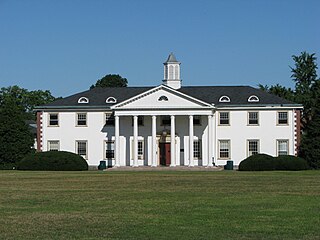
Delaware Valley University (DelVal) is a private university in Doylestown, Pennsylvania. Founded in 1896, it enrolls approximately 1,900 students on its suburban, 570-acre campus. DelVal offers more than 28 undergraduate majors, seven master's programs, a doctoral program, and adult education courses.
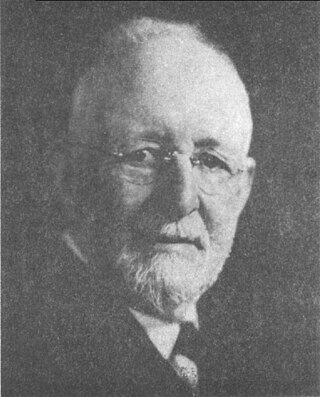
George Wilton Field, Ph. D. was an American biologist, born at North Bridgewater, Massachusetts. Working primarily in Rhode Island and Massachusetts, Field was a pioneer in the field of shellfish aquaculture and water pollution, and took an interest in conservation issues. Beginning in 1916, Field was in the employ of the U.S. Bureau of the Biological survey, and later in his career was the United States representative to the League of Nations International Commission on Water Pollution Control.

Kenyon Leech Butterfield was an American agricultural scientist and college administrator known for developing the Cooperative Extension Service at the Land Grant Universities. He was president of the Rhode Island College of Agriculture and Mechanic Arts (1903-1906); the Massachusetts Agricultural College (1906-1924), and the Michigan Agricultural College, from 1924 to 1928.

The University of Rhode Island (URI) is a public land-grant research university with its main campus in Kingston, Rhode Island, United States. It is the flagship public research as well as the land-grant university of Rhode Island. The university is classified among "R2: Doctoral Universities – High research activity". As of 2019, the URI enrolled 14,653 undergraduate students, 1,982 graduate students, and 1,339 non-degree students, making it the largest university in the state.
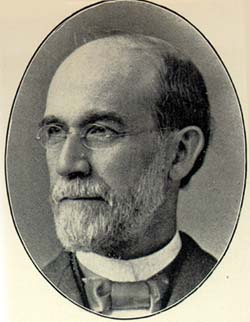
Addison Hutton (1834–1916) was a Philadelphia architect who designed prominent residences in Philadelphia and its suburbs, plus courthouses, hospitals, and libraries, including the Ridgway Library, now Philadelphia High School for the Creative and Performing Arts, and the Historical Society of Pennsylvania. He made major additions to the campuses of Westtown School, George School, Swarthmore College, Bryn Mawr College, Haverford College, and Lehigh University.

John Barlow was an American entomologist and college administrator. For 35 years, he was the chairman of the Zoology Department of Rhode Island State College and was twice interim president of the college.
Gideon Cornell (1710–1766) was a farmer, trader and judge who became the first Chief Justice of the Rhode Island Supreme Court, serving from 1747 to 1749.
George Chapman Caldwell was an American chemist, horticulturalist, and instructor.
Frederic Poole Gorham was an American bacteriologist and educator.
Helena Theresa Goessmann (1868–1926) was an American lecturer, academic, and writer. During the course of 12 years, she gave over 1,000 lectures and talks on historical, educational, literary, and ethical subjects, in the US, including a period of four months in the winter of 1906, when she delivered in the leading Catholic girls' academies, between New York City, Saint Paul, Minnesota, Omaha, Nebraska, and New Orleans, Louisiana, a course, aggregating 125 lectures, on the "Ethics of Scholarship and Education Today". Goessmann served as the head of the department of History, Notre Dame College, Baltimore and Professor of English at State College of Massachusetts. She was actively identified with various social, literary, and religious organizations, in Amherst, Massachusetts, Baltimore, Maryland, and New York.

Henry Prentiss Armsby was an American agricultural chemist, animal nutritionist, and academic administrator. He served as Vice Principal and Acting Principal of the Storrs Agricultural School (1881–1883), associate director of the Wisconsin Agricultural Experiment Station (1883–1887), and director of the Agricultural Experiment Station (1887–1907) and the Institute of Animal Nutrition (1907–1921) at the Pennsylvania State University.
David Marlin Dooley is an American chemist with expertise in organometallic compounds, and university administrator who has served as Provost of Montana State University and the eleventh president of the University of Rhode Island.
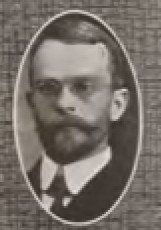
Homer Jay Wheeler was an American agricultural chemist and college administrator. He was the director of the Rhode Island Agricultural Experiment Station at the Rhode Island State College and was interim president of the college between 1902 and 1903. After 1912 until his retirement he was employed by Agricultural Service Bureau of the American Agricultural Chemical Company in Boston and New York City.
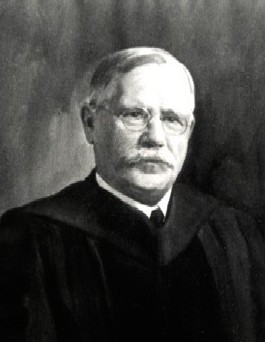
Howard Edwards (1854–1930) was an American educator with expertise in American literature and university administrator who served as the third president of the Rhode Island College of Agriculture and Mechanic Arts from 1906 to 1930; at 24 years old, he was the longest-serving president of the university.

Raymond George Bressler Sr. (1887–1948) was an American educator with expertise in American literature and agricultural extension who served as a university administrator in Texas and Pennsylvania, and served as president of Rhode Island State College from 1931 to 1940. While serving as president during the Great Depression, Bressler managed decreasing student enrollments and ambitious building projects on campus primarily funded by the Works Progress Administration. Despite his success in guiding the numerous building projects and his popularity among students and faculty, he fell into political disfavor with the college's board of trustees, leading to his forced retirement in 1940. Despite Bressler's disfavor with the trustees, the newly elected Rhode Island Governor, J. Howard McGrath upon his inauguration in January 1941 granted Bressler an appointment to his cabinet as Director of Agriculture and Conservation, where he remained in office through the following gubernatorial administration of John O. Pastore until his death on 9 May 1948.
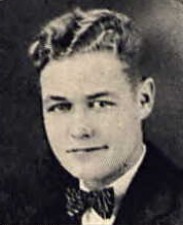
Francis Henry "Fran" Horn (1908-1999) was an American educator with expertise in English literature and higher education who served as a university administrator at several institutions in the Eastern United States, and served as president of several colleges and universities, including the Pratt Institute from 1953-1957, the University of Rhode Island (URI) from 1958 to 1967, Albertus Magnus College from 1968-1970, and the American College of Switzerland from 1972-1975. While serving as president of the University of Rhode Island, he oversaw the founding of two graduate schools, the Graduate Library School and the Graduate School of Oceanography, as well as the establishment of the URI Faculty Senate, and he managed rapidly increasing student enrollments and ambitious building projects on the URI campus. Despite his success in guiding the numerous building projects and building the national and international reputation of the university, he fell into political disfavor with the university's board of trustees primarily for his political aspirations, leading to his forced resignation from URI in 1967. Horn was elected as a member of the Rhode Island Heritage Hall of Fame in 1967, and he spend his retirement years after 1983 at his home in Kingston near the URI campus.
















